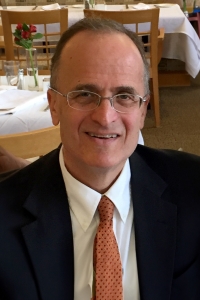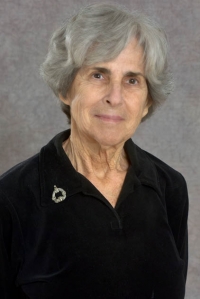Depression Evaluation Service
Current Studies:
- Tele-IPT vs. Tele-Pharmacotherapy for Depression in Patients with Non-Metastatic Breast Cancer (Call 646-774-8000 to learn more)
- Efficacy and Safety of REL-1017 as Adjunctive Treatment of Major Depressive Disorder (Call 646-774-8000 to learn more)
- Study of Women After Menopause who are Taking Medication and/or Receiving Counseling/Therapy for Depression (Call 212-305-7225 to learn more)
- Efficacy and Safety of COMP360 as Treatment for Treatment-Resistant Depression (Call 646-774-8000 to learm more)
For more information about these and other studies visit our current studies page.
What is the Depression Evaluation Sevice:
The Depression Evaluation Service (DES) is an outpatient research and treatment clinic that conducts studies of the cause and treatment of depression. Currently our main focus is on researching the use of psychedelic medications in treatment of various psychiatric disorders. These long-neglected compounds are now undergoing a renaissance in research, with dozens of new studies underway. We have been doing studies of psilocybin for treatment resistant depression, a common and severely disabling condition with few effective treatments, and a recent study (in collaboration with Dr. Franklin Schneier) of body dysmorphic disorder. We are also in process of developing additional studies of psilocybin and other psychedelic compounds. Within the context of our research studies, the DES offers free treatment with antidepressant medications for depressed men and women between the ages of 18 and 75.
Nationally recognized for its research into the biology and treatment of depression, the DES has conducted dozens of studies of medication and psychotherapy, has published over 250 papers, and has received over 30 grants from the National Institute of Mental Health (NIMH), public and private agencies and foundations, and pharmaceutical companies, to study both new and established drugs for depression.
The DES offers free evaluation and medication treatment of depression through participation in treatment studies in midtown Manhattan and upper Manhattan locations. Our goal is to develop new scientific knowledge about the cause and treatment of clinical depressive disorders and related conditions. All treatment is supervised by doctors on the faculty of the Columbia University Department of Psychiatry.
The DES has participated in several landmark multi-site clinical trials sponsored by the National Institutes of Mental Health (NIMH), including Establishing Moderators and Biosignatures of Antidepressant Response for Clinical Care for Depression (EMBARC), Sequenced Treatment Alternatives to Relieve Depression (STAR*D), Combining Medications to Enhance Depression Outcomes (COMED), and Combining Antidepressants to Hasten Remission from Depression (Dual Therapy).
Recent initiatives include the evaluation of investigational medications to treat postpartum depression, major depression, and bipolar depression. We recently published a study of triple chronotherapy (bright lights, sleep phase advancement, prolonged wakefulness) for treatment of major depressive disorder. We are also exploring the neurobiological mechanisms that may underlie depression or affect treatment response, using Magnetic Resonance Imaging (MRI), including the Default Mode Network (DMN), a set of brain circuits which may underlie our sense of self, magnetic resonance spectroscopy (MRSI) which can measure the amount of brain chemicals, and structural MRI, which can measure changes in brain’s anatomy related to depression and its treatments. Since 2019, our new focus is on psychedelic compounds, developing a range of studies that will potentially provide treatment options for complex psychiatric disorders.
Mission
Through effective treatment of patient volunteers, the Depression Evaluation Service (DES) works to develop new scientific knowledge concerning the causes, the diagnosis, and the treatment of mood disorders in order to lead to better outcome.
History
For over 40 years, DES investigators have been studying the medication and psychotherapy treatment of various forms of depression. Currently, we are studying treatments in major depression, dysthymic disorder (chronic depression), bipolar depression, depression in medically ill people, and postpartum depression. All of the psychiatrists on the staff hold teaching appointments at Columbia University’s College of Physicians and Surgeons and work to educate patients about mood disorders and treatment options.
The DES was founded in 1977 by the noted researcher Frederic M. Quitkin, M.D, to promote knowledge of depression and to identify methods for matching specific treatments to different forms of depressive disorders. Nationally recognized for its research into the biology and treatment of depression, the DES has conducted over 45 clinical trials (formal treatment studies) of medication and psychotherapy, has published over 150 papers, and has received over 30 grants from the National Institute of Mental Health (NIMH), public and private agencies and foundations, and pharmaceutical companies to study both new and established drugs for depression. Studies at the DES have helped to define “atypical depression” as a depressive subtype and have examined methods (e.g., asymmetries in brain functioning) to predict which patients will or will not benefit from particular treatments.
Recent Studies include: chronotherapy (combined wake therapy and light therapy) for major depression; the hormonal agent ganaloxone for postpartum depression; lumateperone for bipolar depression; N-acetyl cysteine for bipolar depression; and return to work after fatigue treatment in HIV/AIDS
Support Us
For direct inquiries, please contact the Research Assistant's office at (646) 774-8004.
Or, you can donate through the Columbia Psychiatry Donations page.
Disclaimer
You have entered a Web site that describes research studies at Columbia University and the New York State Psychiatric Institute that focus on various mental health disorders, namely depressive disorders. If you are seeking immediate help for treatment, we recommend that you contact your clinician or nearest emergency room. This Web site was created to provide background and contact information about current research studies and is not set up to offer treatment or treatment advice. The site does not provide a chat room. Please note that any message posted on the site is not confidential.




